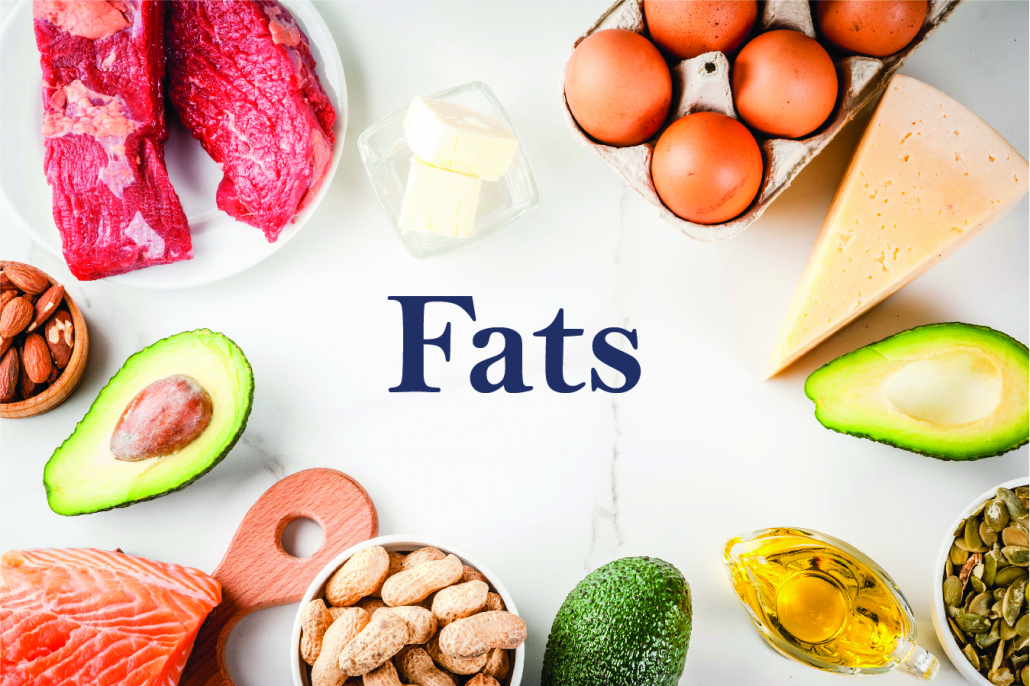Fats in food and its importance
What are Fats?
According to the nutrition facts, the fats are defined as the most essential part of the diet and it plays an important role in maintaining the healthy life.
Fats and cholesterol tend to be the most focused terms of the public and health enthusiasts. There is a valid reason behind this. Fat happens to be the most concentrated source of energy in the diet that provides about 8 to 9 calories per gram while on other hand carbohydrates and proteins have only four calories per gram. Fat is known to have three elements which include carbon, hydrogen, and oxygen. But, it has more amounts of carbon and hydrogen compared to oxygen, hence leading to nine calories per gram. Fats are the source of energy in food, belong to a group of elements called lipids and they are all combinations of saturated and unsaturated fats.
The human body well designed which makes up two types of fats, essential for the proper functioning of the body and are obtained from the food consumed. These fats play a major role in controlling inflammation, blood-coagulation, and brain development. It also serves as a storage unit for storing the body’s extra calories in fat cells or adipose tissue that helps to insulate the body. They tend to be an important source of energy. Fats also help the body to absorb and transport the vitamins A, D, E, and K through the bloodstream.
They help in the absorption of fat soluble vitamins A,D,E and K.
Types of Fats
There are four different types of fats:
- Saturated Fat
It is responsible for bad cholesterol. They are found in most animal products like cheese, milk, meat and so on and hence one must limit the quantity of intake. Unsaturated fat, on the other hand, is substances that are substituted in place of saturated fats and lower the cholesterol levels. Trans fatty acids that one gets from vegetable oils also play a role in increasing the cholesterol levels. Consuming saturated fat in large quantities is the most popular reason for heart diseases as it causes cholesterol to block the arteries.
- Monounsaturated fats
Monounsaturated fats are healthy fats found in Avocados, Macadamia nuts, Peanuts, Olives and Olive oil. It plays a vital role in protecting the heart and also involved in supporting insulin sensitivity, fat storage, weight loss, and healthy energy levels.
- Trans Fats
Trans fats are also called as unsaturated fatty acids or trans fatty acids. These fats are obtained naturally in several foods such as beef, lamb, whole milk, cheese, cream, and butter are acquired from cattle. Conjugated linoleic acid is a natural trans fatty acid which is beneficial in strengthening the immune system and inhibiting the development of cancer. However, most trans fatty acids are made when manufacturers convert liquid oils into solid fats. In the application of hydrogenation, vegetable oils are hydrogenated to produce vegetable shortening, margarine, peanut butter, and other products used for salad dressing. Trans fats are present in many processed foods such as baked food items, cookies, crackers, snack foods, deep-fried foods and other food made or fried in partially hydrogenated oils.
- Polyunsaturated Fats
Polyunsaturated fats are healthy fats, which are abundantly found in both plant and animal foods, such as vegetable oils, Walnuts, Flax seeds, salmon, etc. These fats include both Omega 3 and Omega 6 fats. Omega 3 helps in reducing inflammation, supports healthy hormone levels and cell membranes. Omega 6 fatty acids play an important role in supporting healthy brain and muscle functioning.
We need a small amount of omega 6 fatty acids in our diet. Corn, soybean, safflower, cottonseed, grapeseed and sunflower oils are all high in omega 6’s. Apart from these, the omega 6 fatty acids are also found in most of the baked goods like bread and bakery snacks, packaged foods like cookies, crackers, chips, french fries, which are not stable.
Omega-3 fatty acids are found in foods from plants like soybean oil, canola oil, walnuts, and flaxseed. Oily fish is the best source of omega 3 fatty acids. These fatty acids may help protect against coronary heart disease. A healthy diet includes 8 ounces or more of these types of fish a week, averaging 250 mg a day of these omega-3 fatty acids.
Omega-6 fatty acids are found mostly in liquid vegetable oils like soybean oil, corn oil, and safflower oil. Omega-6 fatty acid aids in reducing the symptoms of diabetic neuropathy, rheumatoid arthritis, allergies and high blood pressure. Total fat includes saturated, polyunsaturated, and monounsaturated fat.
Why is Fat important to the body (functions)?
Fat is important to our bodies because:
- It provides us with warmth and acts like an insulator trapping heat in our bodies.
- It supplies us with the most of our energy. By supplying energy, fats save proteins from being used for energy and allow them to perform their more important role of building and repairing tissues
- It provides a source of fat soluble vitamins A-D-E-K into the body and help in the absorption of these vitamins in the intestines.
- Fat surrounds and protects certain vital organs like the kidneys, glands and others.
- It is part of the structure of cells and tissues (cell membrane) especially in our brain

Comments
Post a Comment